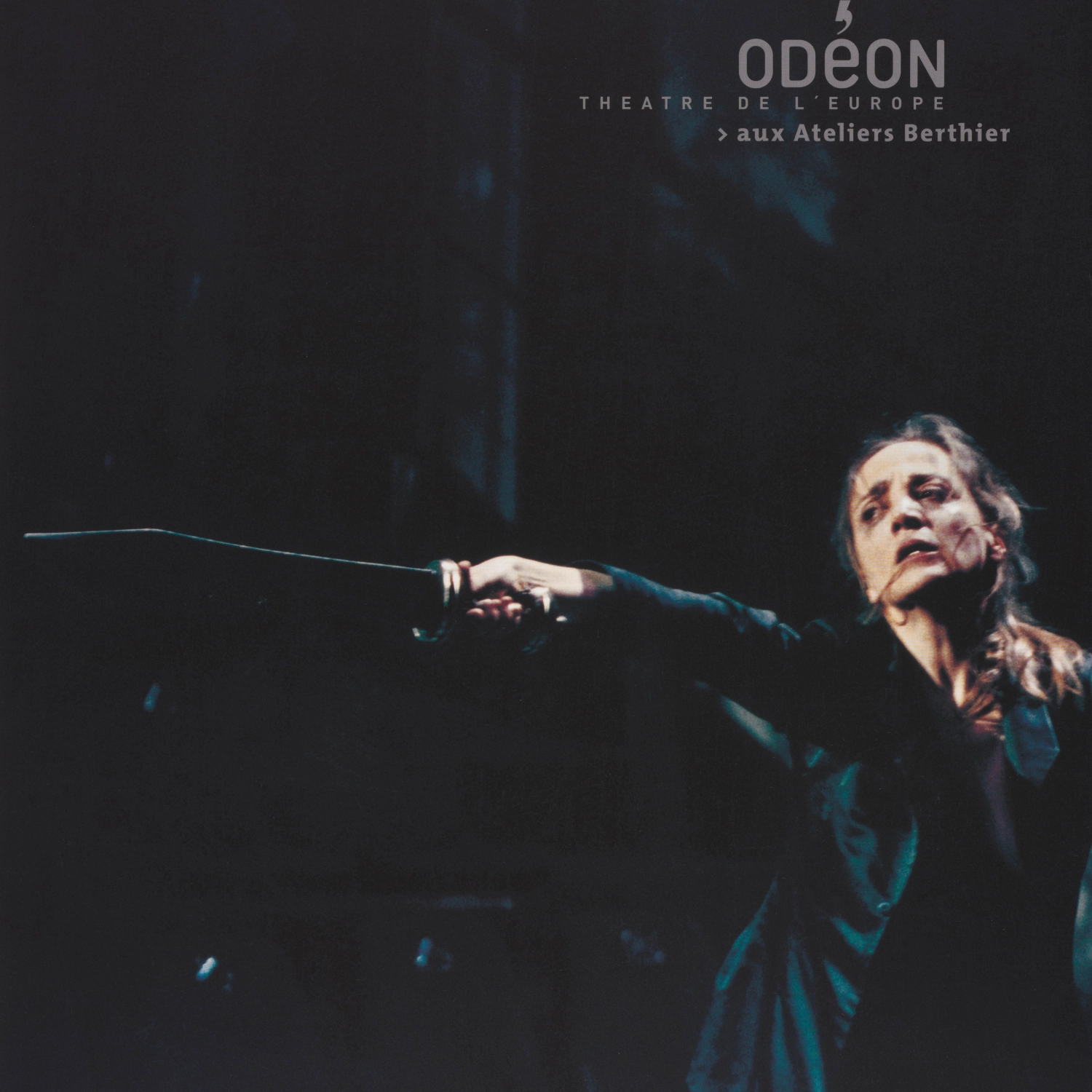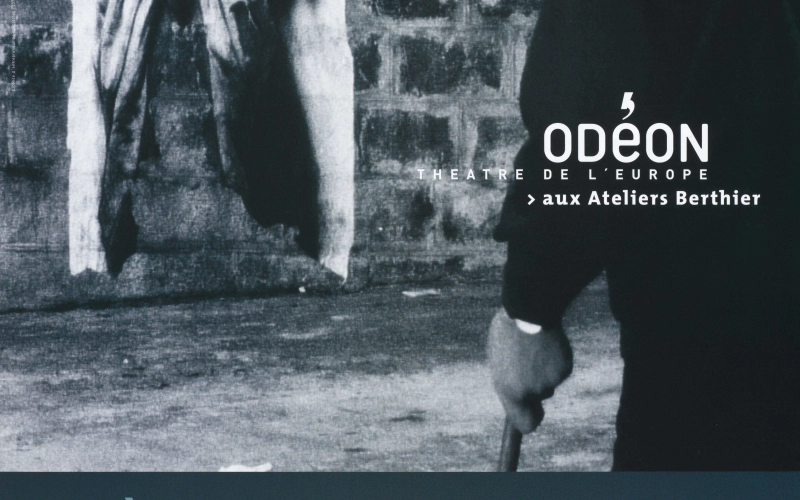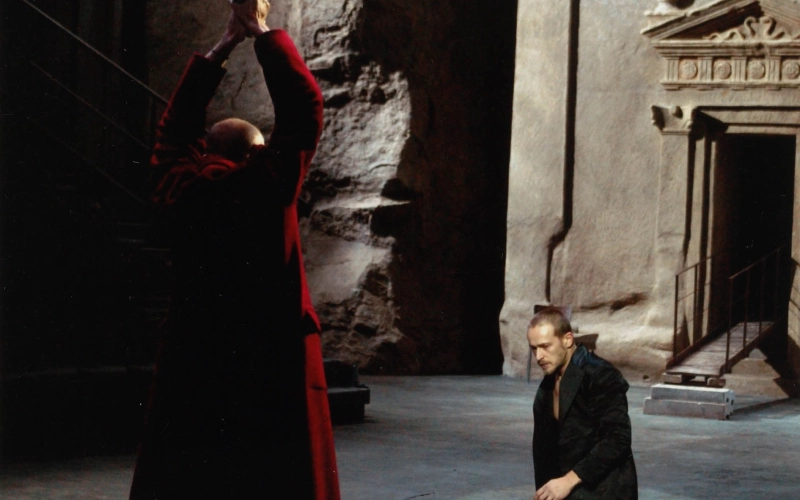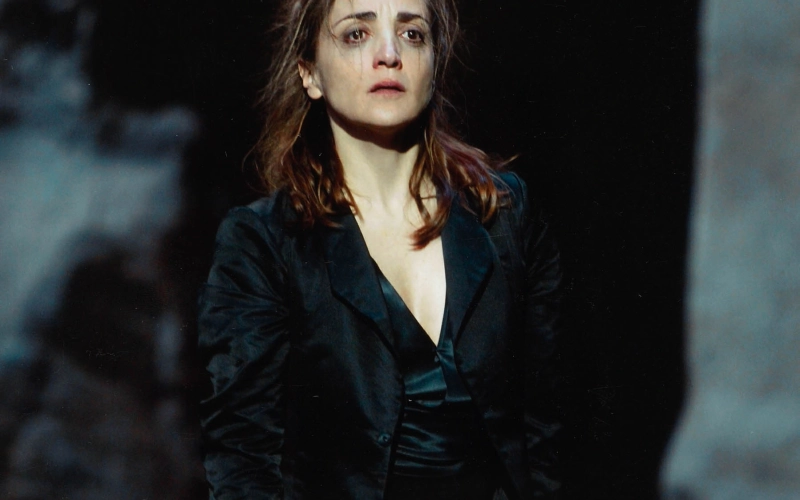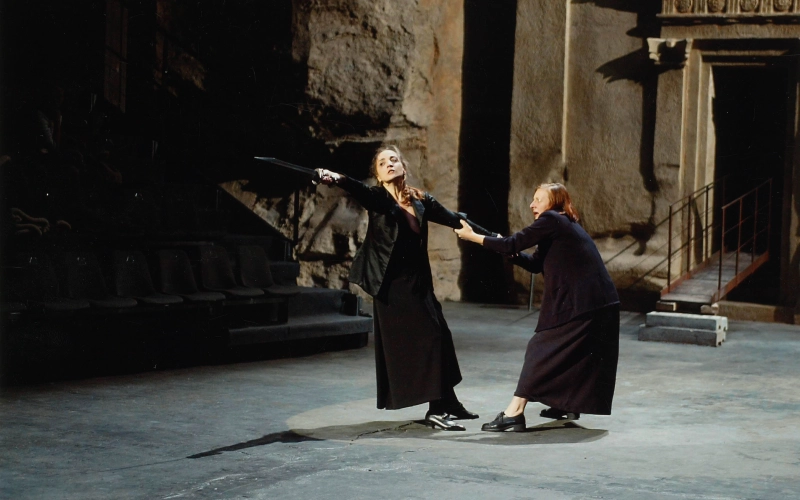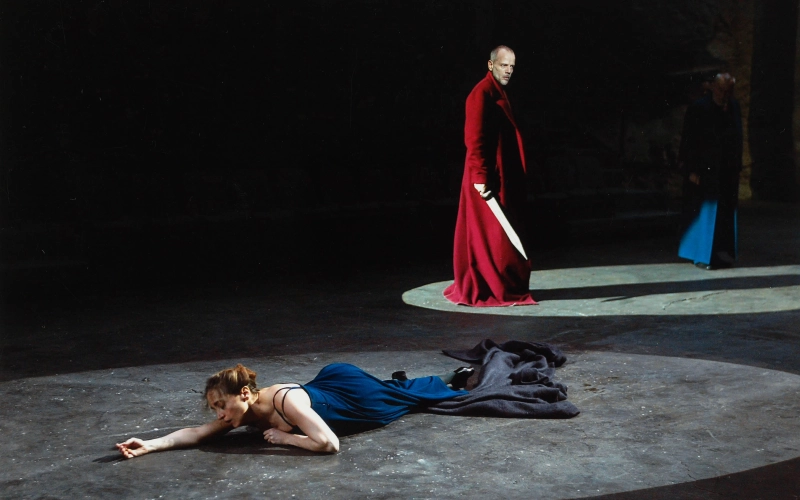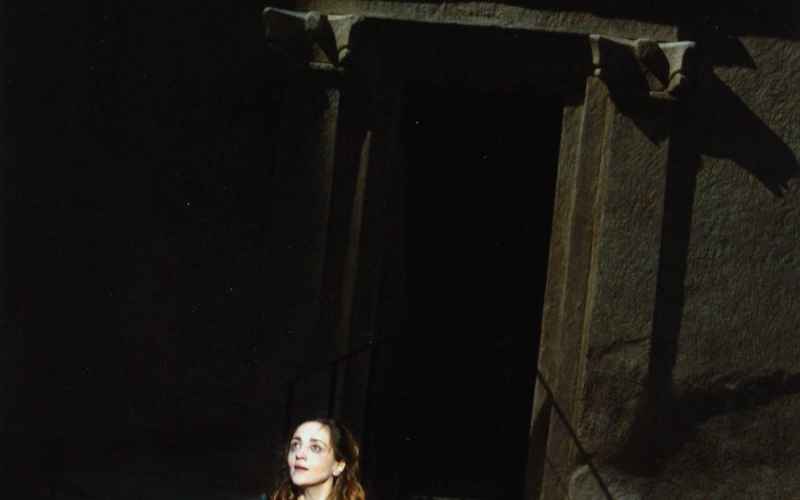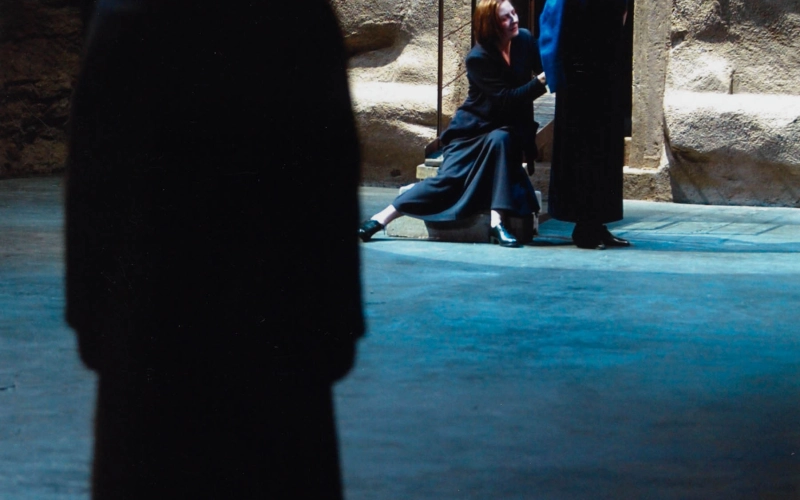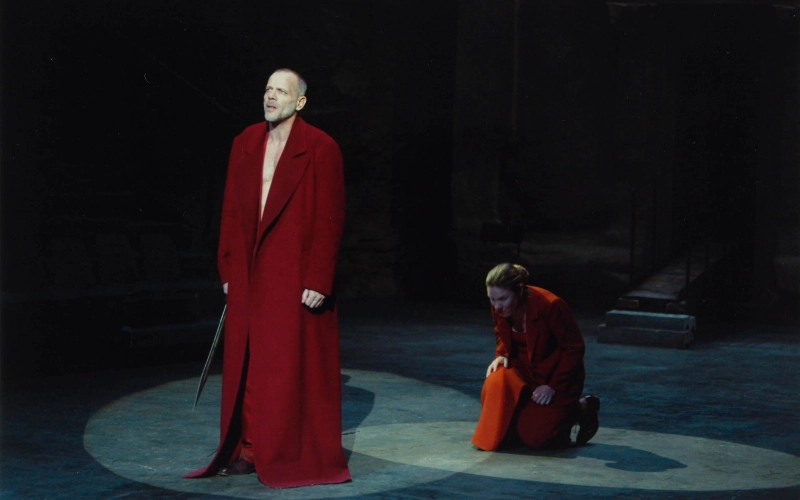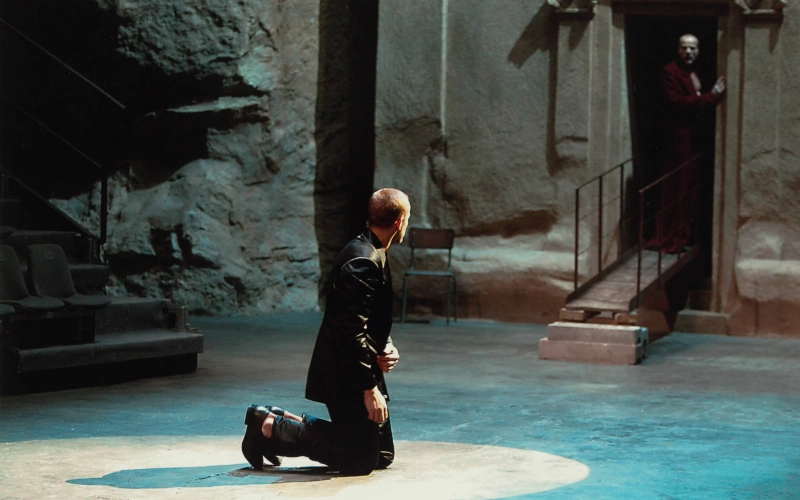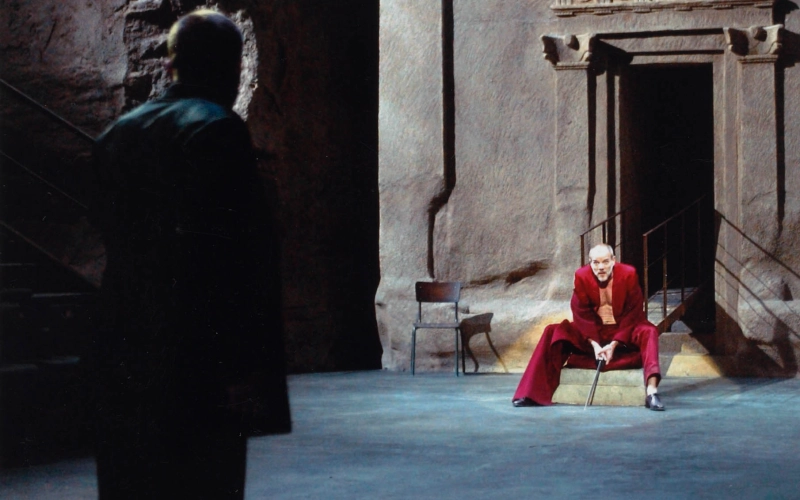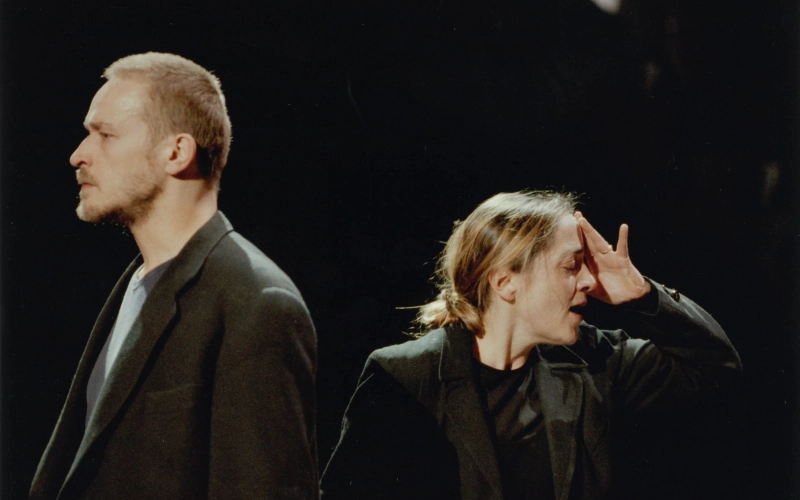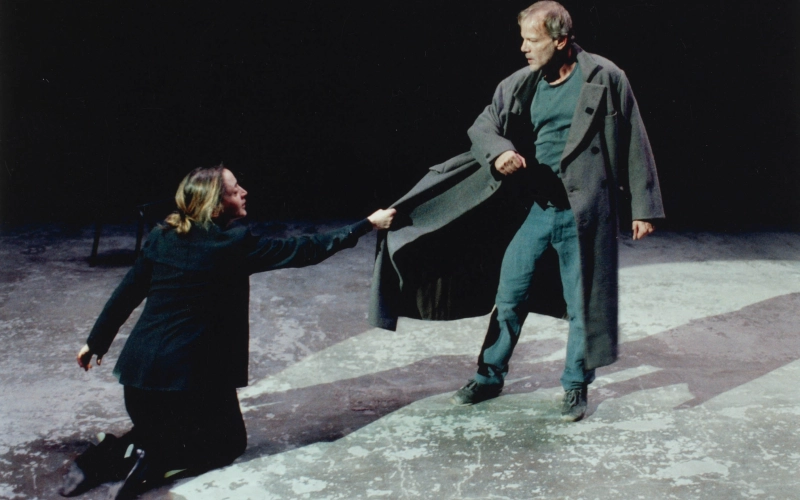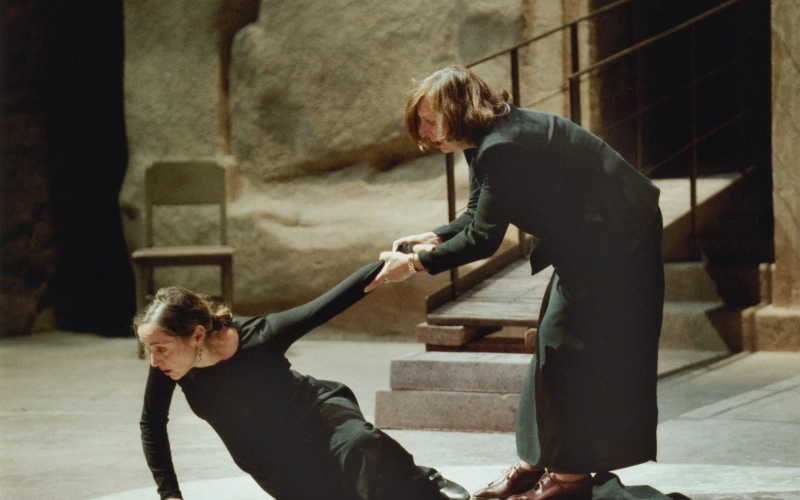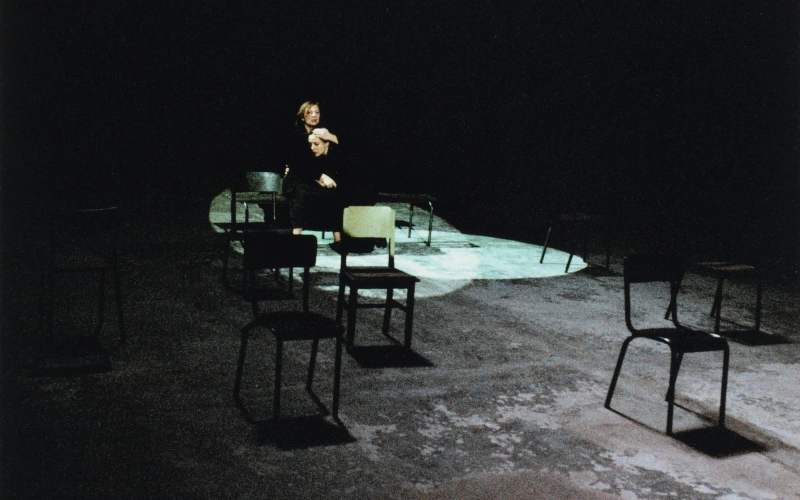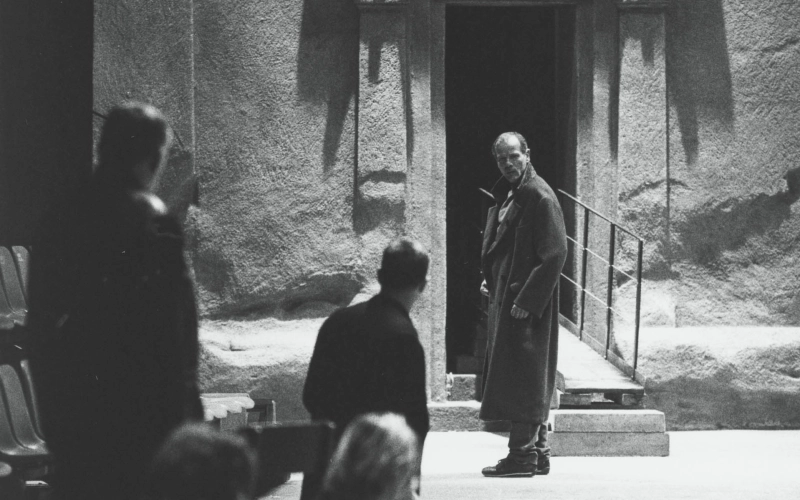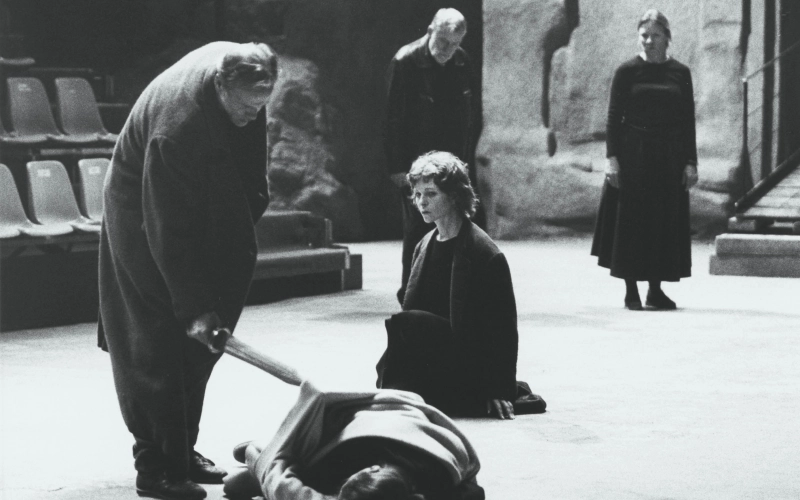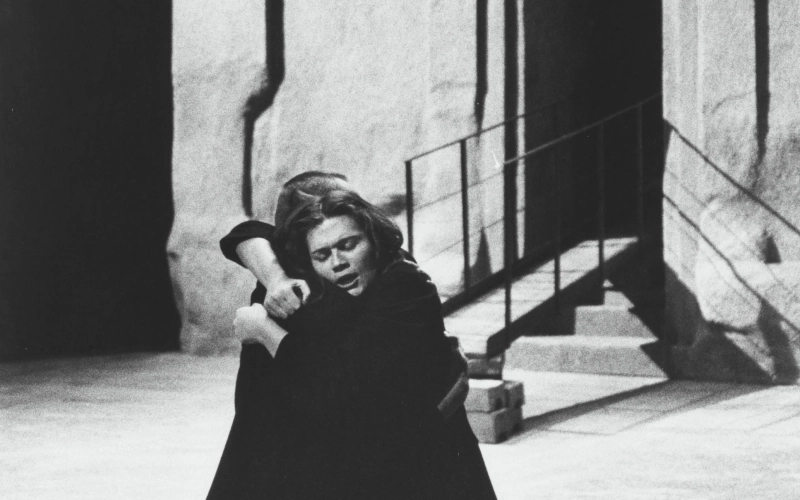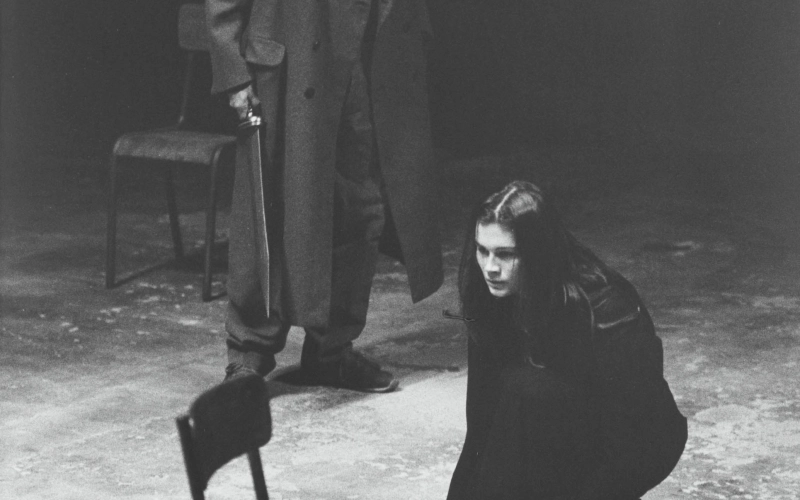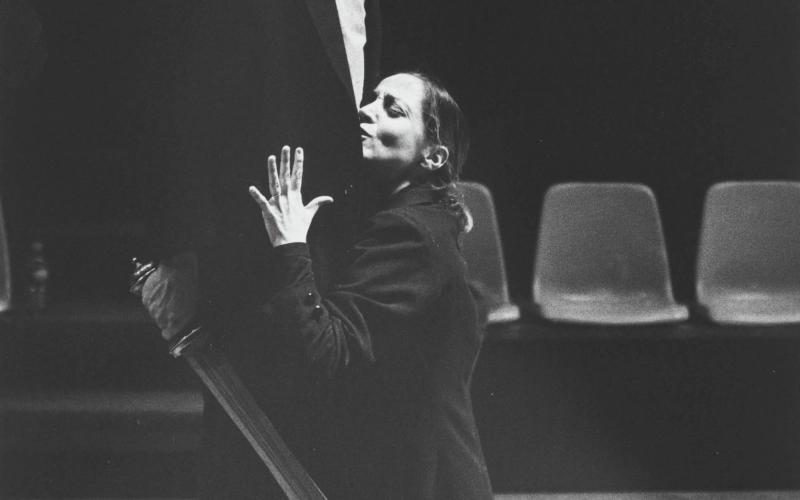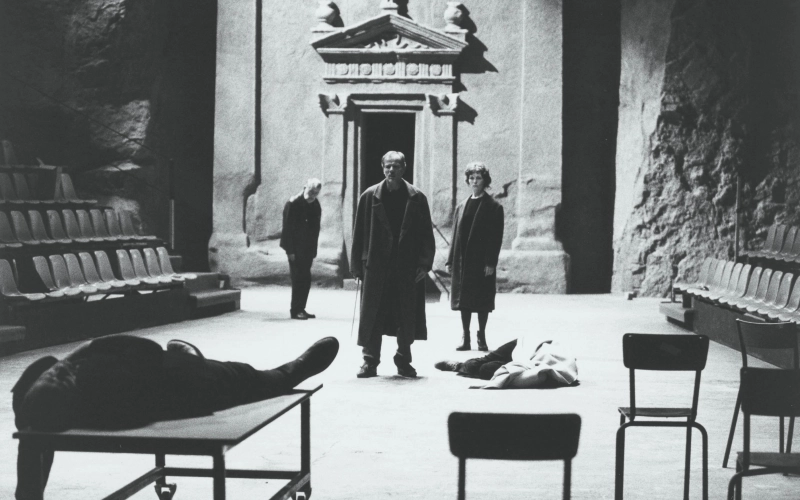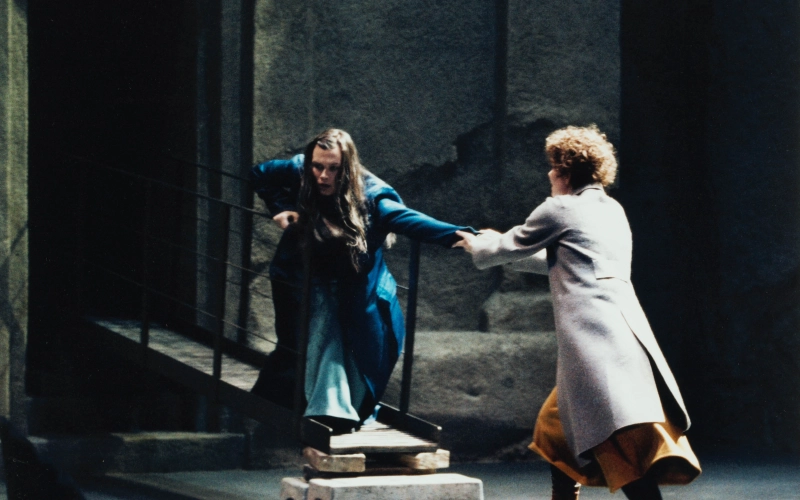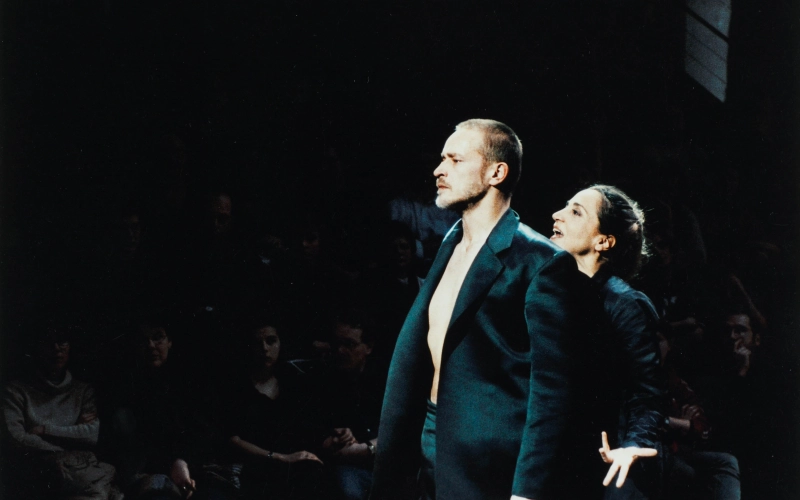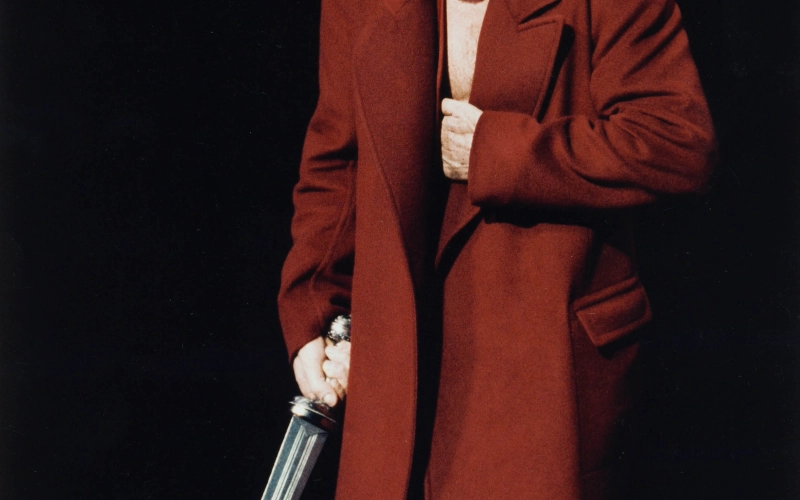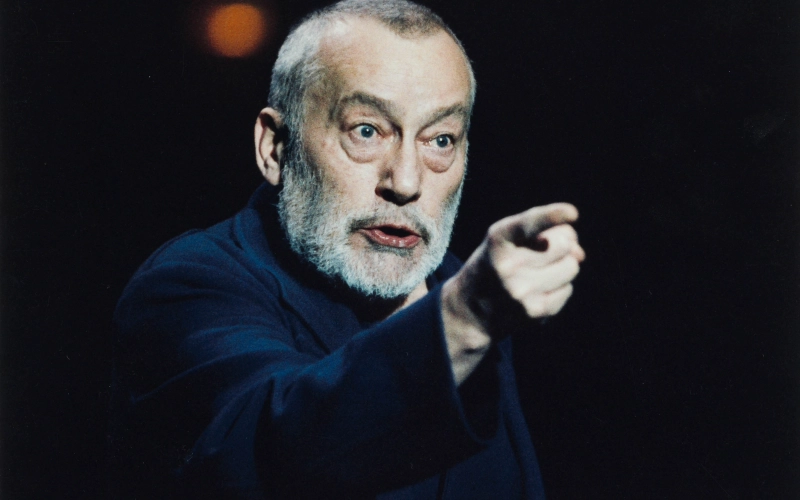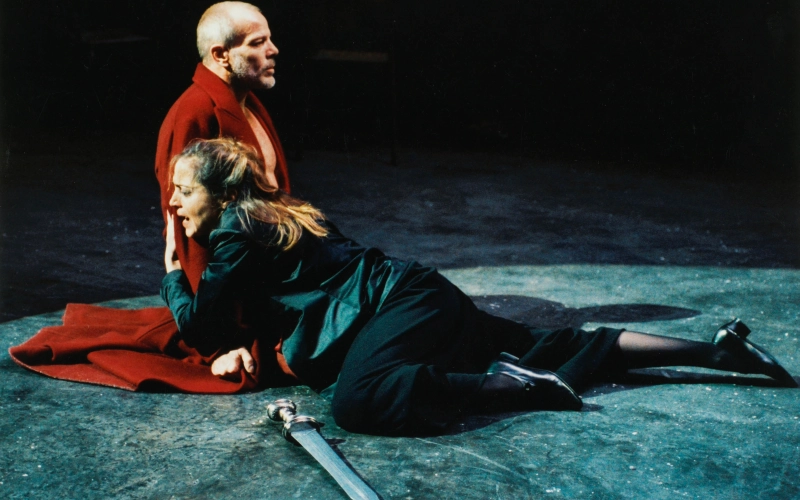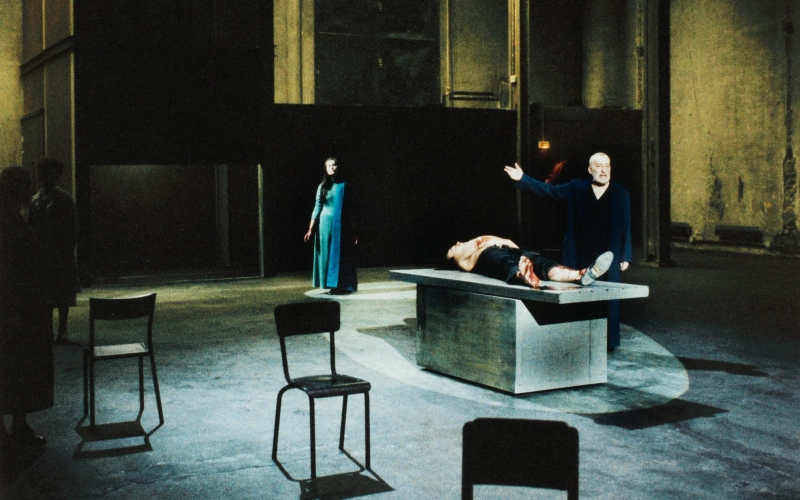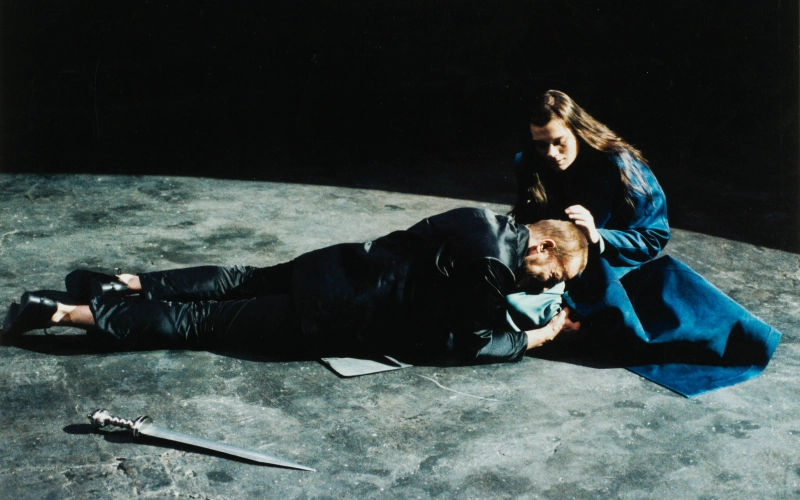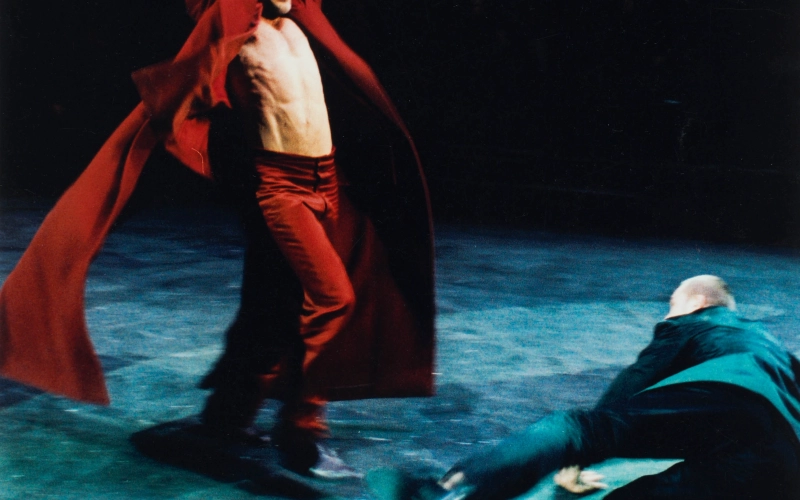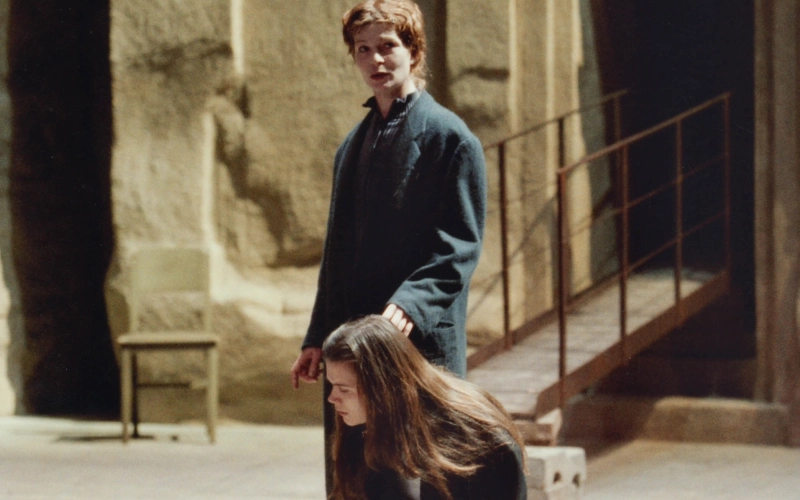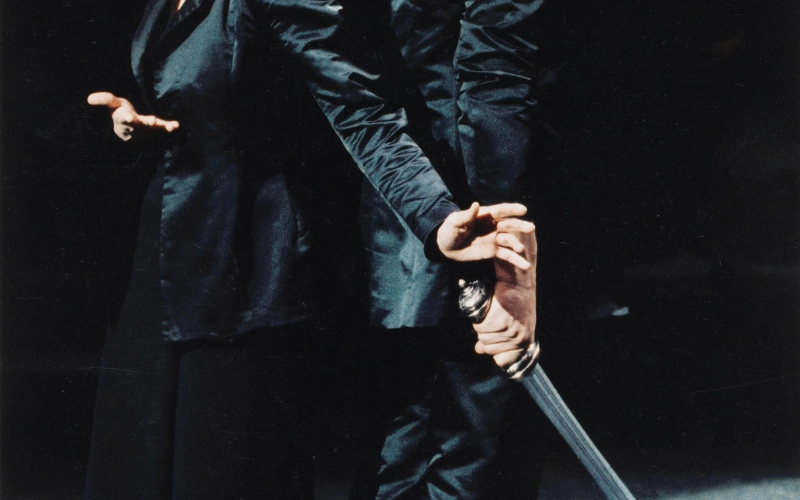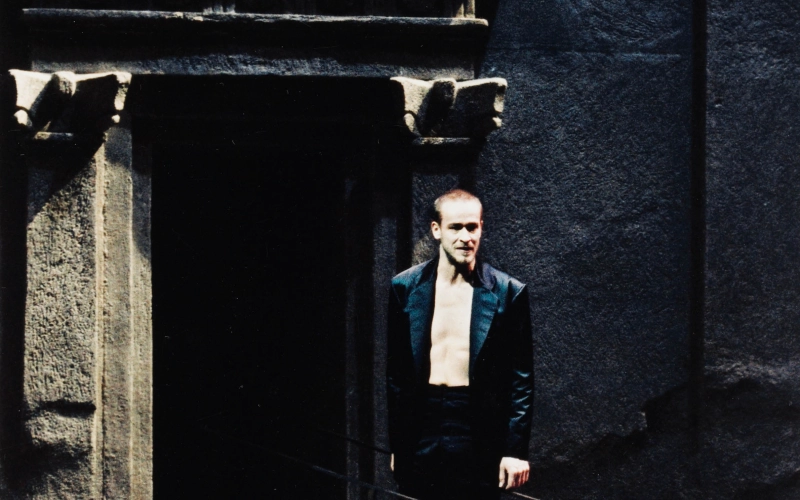Phèdre
January 15 2003 to April 20 2003
Berthier grande salle
In 1995, after the final rehearsals of Dans la solitude des champs de coton, Moidele Bickel, the costume designer, said to Patrice Chéreau: "Now you have to do Racine, and the same way", adding that he had to explore the language
"like that". The invitation was somewhat enigmatic, but not likely to be forgotten. Chéreau read Racine again and saw it take shape. The encounter with the work of Koltès may have been the preparation needed to decode, beneath the clear links and chains of syntax, the obsession of another side of language, fleeing, hidden, ineffable, yet bound to forge a path, relentlessly, towards the light. Phèdre is the grand tragedy of admission or denial, for beneath every step lies a truth that cannot be admitted. The entire plot is a lingering descent to death, a brief solar parenthesis, an implacable interlude standing between the two protagonists and their end. Phèdre and Hippolyte appear as two sides of one same fate (indeed, in 1677, Racine combined the two names in the title of the original edition, a version featuring flowing, meandering punctuation preferred by Chéreau). One side is pure, the other is cursed; but they will not be separated and in their duel appear to befoul one another, forming strange collusions. Both succumb to temptation, as a word inadvertently reveals a desire or a flaw, and can never be retrieved. Both remain silent on their confrontation and become accomplices to the same fatal secret. At the start of the play, both are fleeing. From the opening line of verse, Hippolyte proclaims his decision to set off in search of Thésée. With dreams of wandering and adventure, he sees himself, like his father, the "demi-god" who rid the universe of "monsters repressed". But as soon as Phèdre comes on stage, she declares that she must remain. She can only disappear by dying, following a husband once "dishonouring the couch of Hades' god." Hippolyte would flee the earth; Phèdre would be swallowed up in Hell. Thésée is the mercurial and eminently absent hero figure, is the paradoxical master of order and delight, whose will prevails to the point where his words become flesh; his son would imitate his exploits, and for his wife there is the power of transgression. To explore the secrets of this tortured family, Patrice Chéreau has chosen Pascal Greggory (Thésée), Eric Ruf (Hippolyte) and Michelle Marquais (Oenone), Michel Duchaussoy (Théramène) and Marina Hands, Agnès Sourdillon and Nathalie Bécue. And it is Dominique Blanc (who so impressed Odéon audiences in "A Doll's House" in 1997), who was Chéreau's choice, after many years working together, for one of the major and most demanding roles in the repertoire.
